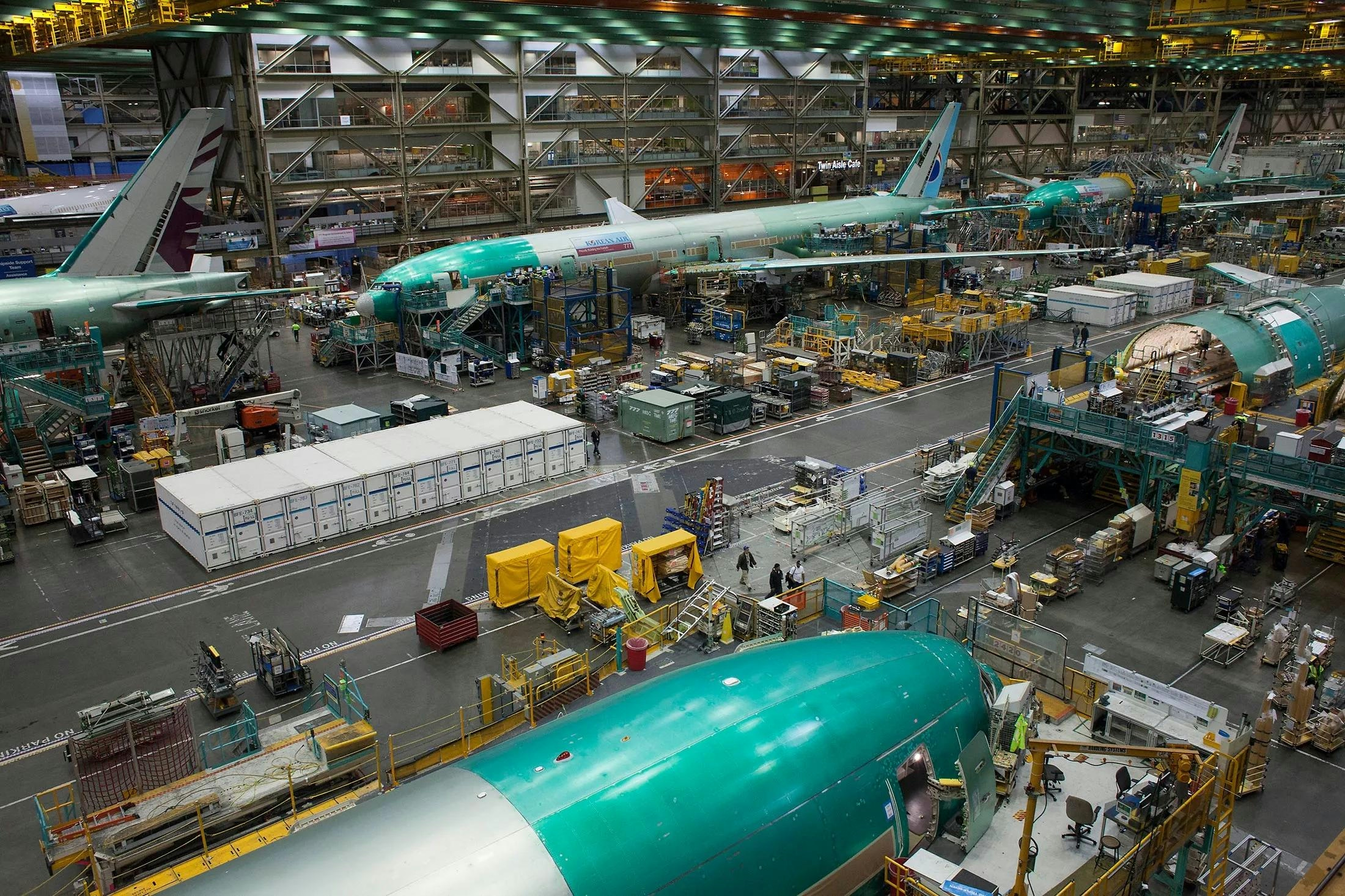AeroGenie — Seu Copiloto Inteligente.
Tendências
Categories
Boeing Ends Production of Its Best-Selling Widebody Aircraft

Boeing Ends Production of Its Best-Selling Widebody Aircraft
Conclusion of the 777-300ER Program
SEATTLE — Boeing has officially ended production of its iconic 777-300ER, closing a nearly two-decade chapter for the world’s best-selling widebody aircraft. According to Boeing’s 2024 delivery records, only one final 777-300ER was delivered this year, signaling the conclusion of the program. This development, first reported by The Air Current, marks a significant milestone in commercial aviation history.
The 777-300ER, introduced in 2004, revolutionized long-haul air travel with its impressive 7,370 nautical mile range and efficient twin-engine design powered by General Electric GE90 engines. The aircraft set new standards for reliability and fuel efficiency, accommodating 392 passengers in a typical two-class layout. Its widespread adoption by airlines globally underscored Boeing’s technological leadership and strategic market insight, making the 777-300ER a cornerstone of international fleets.
Strategic Shift and Industry Challenges
Following Boeing Commercial Airplanes CEO Stephanie Pope’s announcement in December of resumed production across multiple lines after a machinists’ strike, the company has now shifted its focus exclusively to the next-generation 777X program. This transition reflects a broader realignment of Boeing’s production strategy amid ongoing labor disruptions that have also affected its defense contract obligations.
The aerospace giant is navigating a challenging period marked by labor strikes that have raised concerns about the reliability of its defense contracts and unsettled investor confidence. Industry analysts suggest that competitors such as Airbus may capitalize on these difficulties, leveraging their manufacturing scale and supply chain flexibility to increase market share and potentially surpass Boeing in aircraft deliveries.
The 777X program itself has encountered delays, frustrating key customers like Emirates, which has placed orders for over 200 units. These setbacks could influence market dynamics as airlines reassess their fleet strategies in response to Boeing’s production challenges.
Regulatory Hurdles and Future Prospects
In parallel with the 777 program’s conclusion, Boeing is pursuing temporary regulatory exemptions from the Federal Aviation Administration (FAA) concerning the stall-management yaw damper system on its 737 Max 7 and Max 10 models. Filed in January 2025, these requests address difficulties in meeting updated regulatory standards following a system classification change. Securing these exemptions is critical for advancing the certification timeline of the delayed Max variants and enabling Boeing to implement planned safety updates across the entire Max fleet.
Boeing maintains that the current 737 MAX fleet remains unaffected by these certification issues, emphasizing the yaw damper system’s 250 million flight hours of reliable operation over 25 years. The company asserts that extensive testing has confirmed the safety and reliability of the Max 7 and Max 10 configurations.
As Boeing closes the chapter on the 777-300ER, it faces mounting pressure to resolve labor disputes, restore investor confidence, and successfully deliver on its next-generation aircraft programs amid intensifying competition from Airbus and evolving market expectations.

Emirates Unveils Cabin Design for New Boeing 777X

Eighteen Years On, the Airbus A380 Remains Central to a $34 Billion Airline

How a boom in luxury airline seats is slowing down jet deliveries

Navitaire Outage Attributed to Planned Maintenance

DigiYatra Debuts Outside Aviation at India AI Impact Summit

Vietnam Orders Strengthen Boeing’s Commercial Outlook

Airbus Signals Uncertainty Over Future A400M Orders

JobsOhio Awards $2 Million Grant to Hartzell Propeller for Innovation Center

Collins Aerospace Tests Sidekick Autonomy Software on YFQ-42A for U.S. Air Force CCA Program

How the Airbus A350-1000 Compares to the Boeing 777
